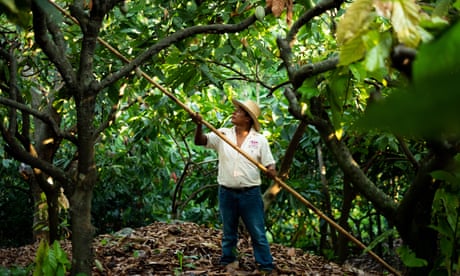Much of the discussion of redesigning the markets for water focus on "blue water," i.e. surface water in rivers and lakes, and runoff from rain, and resulting accumulation in reservoirs, snowpacks, and ground water.
Here's a paper in Nature pointing out that, particularly as climates change, we also have to think of "green water," namely water from evaporation and rain, and how to manage that.
Rockström, Johan, Mariana Mazzucato, Lauren Seaby Andersen, Simon Felix Fahrländer, and Dieter Gerten. "Why we need a new economics of water as a common good." Nature (2023).
"Water managers have always had to deal with natural variability, building larger reservoirs and tapping aquifers to fight scarcity, for example. But current challenges and trends in the rest of this century demand a completely different approach: a radical shake-up in how water is governed, managed and valued, from local to global scales, including a re-evaluation of human water needs (see Supplementary information, Box S1).
"Today, the sector concentrates on flows of ‘blue’ fresh water — liquid that runs off the land and is stored in rivers, lakes, reservoirs and underground aquifers. Utilities capture and extract this water locally for drinking and sanitation, agricultural irrigation and industry.
...
"Managing fresh water on a global scale means going beyond our current fixation on capturing blue water, which constitutes 35% of all fresh water on land, to also encompass green water, which makes up the remaining 65% (see Supplementary information, Fig. S1). Flows of moisture and vapour from land and vegetation are essential for regulating the water cycle and securing future rainfall, as well enabling carbon sequestration in soils and forests.
"Globally, up to half of terrestrial precipitation originates from green water evaporated over land, with the rest from evaporation over the ocean3. Thus, landscape changes can alter water supplies in regions downwind, as well as changing local climates and streamflows. For example, deforestation in the Congo Basin lowers rainfall in neighbouring countries, and even across the Atlantic in the Amazon. Heavy irrigation of crops in India can boost the streamflow of the Yangtze River in China, through moisture transported downwind4.
"By analogy with watersheds on land, researchers refer to ‘precipitationsheds’ and ‘evaporationsheds’ in the atmosphere. Simply put, a precipitationshed is where rain comes from and an evaporationshed is where evaporation goes to. (Here, evaporation refers to total evaporation from the ocean and green water flows from land, including from soil and water bodies, as well as transpiration from vegetation.)"







